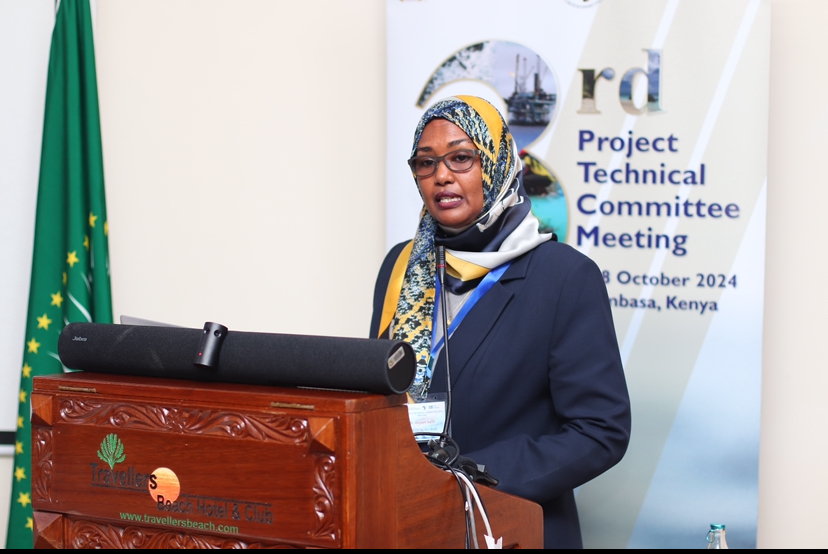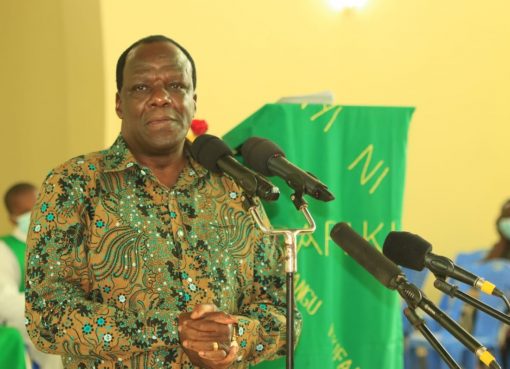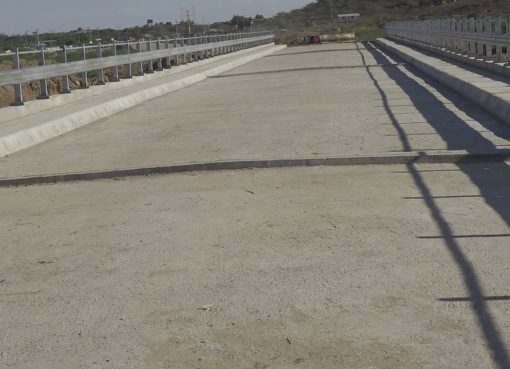The African Union Inter-African Bureau for Animal Resources (AU-IBAR) has challenged AU member states to prioritize the conservation of aquatic ecosystems amid climate change and major environmental threats.
AU-IBAR is implementing the donor-funded Conserving Aquatic Biodiversity in the African Blue Economy Project. Following review, the project has been granted a 15-month no-cost extension.
The three-year, Swedish International Development Cooperation Agency (SIDA)-funded project began in October 2021 and was set to end in December 2024.
It aims to strengthen the institutional capacities of AU member states and regional institutions to enhance governance of aquatic biodiversity and accrue benefits to the continent regarding sustainable food and nutrition security, sustainable livelihoods, and wealth creation for the citizens of Africa.
“It aims to support the AU member states in conserving the biodiversity in the ecosystems of marine and fresh waters in the continent,” said Director AU-IBAR Dr Huyam Salih, in Mombasa during the third Project Technical and Steering Committee Meeting.
“So that we ensure that our fisheries and our aquacultures are having the good systems to grow and making more resilience for our fishermen and the livelihoods of the African citizens.”
The project, she said has made impressive milestones in enhancing awareness, institutional capacity strengthening and advancing trans boundary processes for transformative management of aquatic biodiversity, including fisheries resources.
Africa, Dr Huyam noted is endowed with vast fisheries and aquaculture resources including the seven African Large Marine Ecosystems (LMEs): Agulhas Current LME, Benguela Current LME, Guinea Current LME, Canary Current LME, Mediterranean Sea LME, Red Sea LME and Somali Current LME but faces existential threats.
“We have problems including the overexploitation of the fisheries and the bio species of the animal resources that we have inside our waters,” stated Dr Salih.
She further said, “Many negative impacts are coming from mining, oil and transportation and tourism that affect the fisheries resources in the continent and for that, we need to have this project to address these issues on the continent.”
She asserted that the situation is very bad as most of the areas have lost fisheries species and the project ensured that AU member states are ratifying the global instruments and tools to make sure that the ecosystems are well protected, stop overfishing activities, and ensure that there are replacements for aquatic ecosystems.
“We need to make sure that we have centres of excellence identified and designated by the AU to do research, bring those data and figures on how much our ecosystems are affected and also to train our fishermen, government officials on how to protect the marine areas, rivers and the lakes as well,” explained Dr Salih.
AU is collaborating with NGOs targeting women processing networks for fishers and aquaculture because of their vulnerabilities. Dr Salih revealed that some industries have taken over the land where women used to process fish.
The regional body targets to take care of the lost biodiversity by formulating policies and figures to address the gaps and challenges. The AU works with Kenya, Uganda and Tanzania to address transboundary issues in aquatic ecosystem conservation in the Eastern Africa region.
AU has also equipped some regional institutions with equipment to conduct Marine Spatial Planning, which will enable the AU member states to plan for marine resources and surveillance.
By Sadik Hassan




